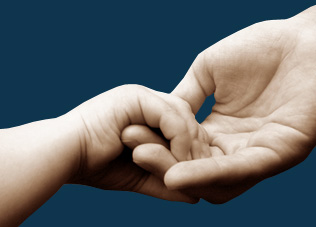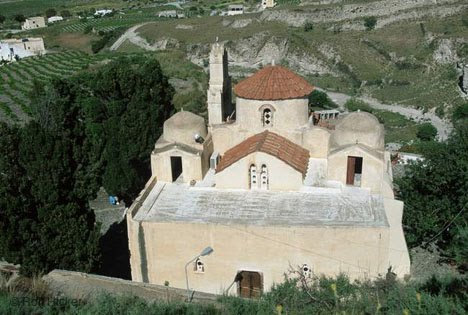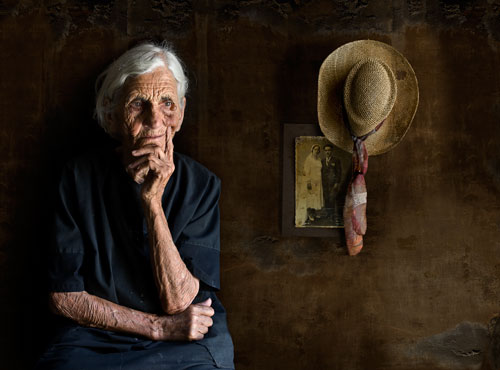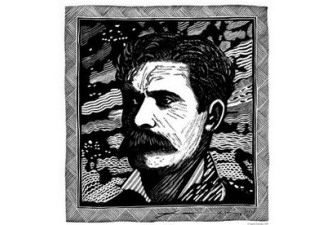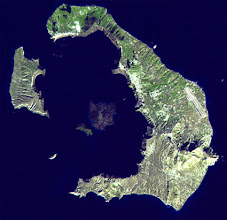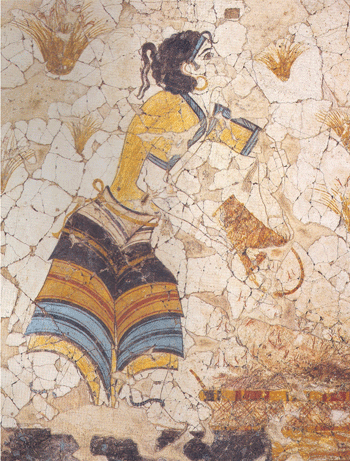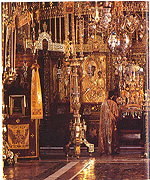
By N. M., former heretic group leader
This question, which may seem so unnatural to a Greek Orthodox faithful, is of great importance to another Greek, who does NOT believe in the Orthodox faith, or has little to do with it. As a former founder of a Greek Protestant group and now converted to Orthodoxy, I believe it is worth giving an answer to this question, from within my personal, past experience, from the point of view of a Greek Protestant and a formerly avowed enemy of the Orthodox Church. So, the question is: How does a Greek Protestant view Orthodoxy? And what does it take, for him to appreciate it? Special note to readers: This article is chiefly directed at Greek Protestants and not to Protestants worldwide in general (where the majority of the populations are historically Protestant) 1. A negative image of Greek Orthodoxy When Greek Protestant pastors refer to the Orthodox Church here in Greece, it is almost always in a critical spirit. And it is a fact, that from a pious westerner’s point of view, they find many things in the Orthodox Church of Greece that are annoying. Let us therefore first take a look at some basic things that a Greek Protestant finds annoying, out of what he observes in the Orthodox Church in Greece. 1.1 The ignorance of the “mob” When a Greek Protestant converses with a chance Greek Orthodox, and begins to set out various arguments (usually from within the Holy Bible), in most cases he will have before him a totally ignorant person; usually one who has not “had a taste” of the Christian faith and quite often just a fanatical “follower”, but not a conscientious faithful. It is a fact, that the average Greek Orthodox is usually less involved with the Orthodox Church than he is with his favourite soccer team, or with foreign literature, or with science, or with...Buddhism. Thus, in the eyes of that Protestant, that person will not be perceived as someone who does not know Orthodoxy, but as a representative of…Orthodoxy! They tend to “look down” on Protestants, just like the Pharisees’ attitude in the time of Christ, who used to say: “…this mob who does not know the law – accursed be it!...” (John 7:49). 1.2 The deficiency observed in the Presbyters In the eyes of a Greek Protestant, the scandals of the Orthodox clergy convince him even more, of the correctness of his choice of “anything rather than Orthodoxy”. Almost each and every priest is seen by them as an “enemy”, “a mercenary of the enemy”, a “fraud”, a “predator wolf”, “immoral” and an “exploiter”. Most of all though, it is the fanaticism and animosity that is apparent or purposely displayed by some of them, that constitutes the most repulsive factor. 1.3 The lack of parish solidarity While most Greek Protestants have warm social relationships in their congregations, in most Greek Orthodox parishes exactly the opposite is observed. Parishioners feel like strangers amongst strangers, and this, to a Greek Protestant, is proof of a lack of Christian love – something that he feels exists in the minority assemblies of his own particular group, where everybody knows everybody, and where there is much closer contact between them, due to their common particularities. 1.4 The mode of worship Greek Protestants regard the Orthodox mode of worship as “a thing apart from the Bible”. They have a resentment towards Orthodox icons, psalm-singing, temples, sacraments, vestments, services, holy canons, etc.. Whatever they have been taught as not belonging to the “proto-Christian, Scriptural” model of worship, they will not accept as Christianically “valid” and will refer to it as “traditions of men”. Moreover, they are annoyed by the “recklessness” that seems to prevail in Greek Orthodox life and worship - both among the laity as well as among the clergy – as well as the attitudes thereof. Being accustomed as they are to the disciplined life of their group, they regard the local Orthodox faith more like a “transit area”. From the above, it is obvious that the local Protestants (but also the Western-raised, local “Orthodox” of our time, who have objections of their own about our faith) focus mainly on the phenomena – the visible “symptoms”. They do not delve in depth, into the causes that underlie every phenomenon. They remain on the surface of the issue, and its essence inevitably escapes them. They generalize the “whole” and overlook the “components”. They are also oblivious to certain important parameters of the Christian faith, and have never asked themselves “how valid are some of the things that they were taught as given” in Protestantism. As a result, they fail to even TRY to see the things from the Orthodox viewpoint; Because this would have been the only way that they would have been able to perceive Orthodoxy’s grandeur. If one doesn’t try to understand the other, along with the way he thinks, one will never be able to comprehend the other’s behaviour or the “symptoms” behind his faith, in depth. This is the reason that – before replying to the question “why be an Orthodox?” - I had wished to firstly show what repels a Western-raised Greek in Orthodoxy, locally. 2. The source of the Christian Faith The first basic thing that constitutes a sufficient and serious reason for one to be a Christian (in the broad sense of the word) Orthodox, is to comprehend the significance of the source of the faith. 3. Historical witness In this way, this person will begin his own search for the HISTORICAL Church. Regardless of what assertions someone may have (as to what the early Christians supposedly did or believed in their worship), there are historical records, early Christian texts and archaeological discoveries, which evidence that Christians from the very beginning worshipped God in the Orthodox manner, and not in the Protestant one. There was an acknowledgement of Synods, specialized clergy, icons, vestments, the honouring of saints and holy relics, clearly defined dogmas, Divine Liturgy, Confession, Holy Unction, Chrismation, memorial services, the Crucifix, fasting, feast-days… All these things existed, from the very beginning, with changes being made to the Rubric only in details of minor significance. Should a Protestant discover all this information within the ancient historical sources, he will come to realize that everything he had been taught by his leaders was just an arbitrary and false depiction of the first Christian Church; and he will realize that everything he detested in Orthodox worship as non-Scriptural, is precisely that which was delivered to us by the Lord Himself!!! Historical research will most assuredly lead a well-intentioned person to Orthodox worship, away from the Protestant concoctions of the 16th century. The following, equally important matter that will help one to understand that they cannot claim something to be “Christian” in nature if it is outside of the Orthodox Church, is the matter of Apostolic Succession. When one studies the ancient Christian sources, one begins to comprehend certain verses of the Holy Scripture; having lacked that knowledge previously, that person would have easily misconstrued or remained ignorant of them. The researcher will come to realize that the Church functions by means of the God-given Synodic system and that this same system is the very guarantor of the unity, the cohesion and the Holy-Spiritual life of the Church. All of the above information will, by now, have provided that person with reliable answers to everything that he once used to accuse the Orthodox Church of. He will have understood by now the reasons for the “recklessness” observed in many of the Orthodox laity and clergy. He will now have perceived that in a Synodic System (where there is no “pyramidal” hierarchy with absolute, monolithic powers), it is only natural for disagreements and conflicts to occur between bishops on immaterial issues. He will understand that in an unshackled worship, it is only natural to find a plethora of clergy and laity who will exploit that freedom (albeit to their own detriment). And furthermore, that in such a freedom-filled worship, it is only natural for pseudo-Christians and opportunists to exist. This person will have also realized by now that the same things have always been observed in the people of God, and that Christ’s ‘field’ always had, still has, and will continue to have, weeds growing in it! Whether or not a Protestant, in the Orthodox Church he will also find something that cannot be found anywhere else. He will find ABSOLUTE DOGMATIC CONSISTENCY. Because, even if one wanted (contrary to nature) to regard Orthodoxy as a “worldly idol”, its superiority would still be grandly obvious - as opposed to any man-made worldly idol, every philosophy, religion or ideology. Because only the Orthodox Church is a REVELATION by God, on issues of life and salvation. Only in Orthodoxy does one learn the UNIQUE way that God can be recognized as a Persona, as well as the meaning of “Persona” in Jesus Christ. Only in Orthodoxy does one learn of a proven method of psychotherapy with experimental verification thereof in the person of the saints. Only in Orthodoxy does one learn why God is Triadic and what the expression “God is love” means. Only in Orthodoxy can one sense the element of freedom in his worship, and learn the reason for Christ’s sacrifice, away from the fear of an avenger-god. Only in Orthodoxy can one learn the truth about Hell and Paradise and appreciate the grandeur of God’s love. Only in Orthodoxy can one savour from the present time the Future Aeon of the Kingdom of God, far away from all the false promises for the future, which have no actual reciprocation in the real world. All of the above, along with all the components of Orthodox Dogmatics, have such a completeness and reliability that cannot be found anywhere else. Because nowhere else can one find Divine Revelation unadulterated. When Man uses the Orthodox faith as a measure of comparison, he will find every other ideology and foreign dogma entirely inadequate! Finally, as a person settles down in the Orthodox faith and lives the true meaning of Orthodoxy, he is gradually transformed into a likeness of his God and Lord Jesus Christ and he begins to confront his life and his fellow men in a totally different manner – one that cannot be found anywhere else. |
Πέμπτη 8 Απριλίου 2010
Greek Protestants ask: Why be Orthodox?
Επιτρέπεται η αντιγραφή και ιεραποστολική αξιοποίηση των κειμένων πού θα βρείτε εδώ, είτε ημετέρων ή αντεγραμμένων από άλλους ιστοχώρους, ΑΠΟΚΛΕΙΣΤΙΚΑ από ορθόδοξα ή φιλορθόδοξα ιστολόγια με υποχρέωση την αναφορά πηγής και συγγραφέως του κειμένου και την μη περικοπή αυτού για οποιονδήποτε λόγο.Τα ανυπόγραφα άρθρα και όσα δεν αναφέρουν πηγή ανήκουν στο υποφαινόμενο ιστολόγιο.
Συνήθως οι εικόνες πού χρησιμοποιούμε, παρέχονται από την αναζήτηση google.Αν νομίζετε ότι η ανάρτηση τους θίγει δικαιώματα σας, ειδοποιήστε να τις κατεβάσουμε.
Ευχαριστούμε
Συνήθως οι εικόνες πού χρησιμοποιούμε, παρέχονται από την αναζήτηση google.Αν νομίζετε ότι η ανάρτηση τους θίγει δικαιώματα σας, ειδοποιήστε να τις κατεβάσουμε.
Ευχαριστούμε




